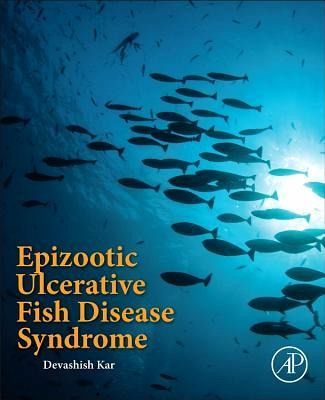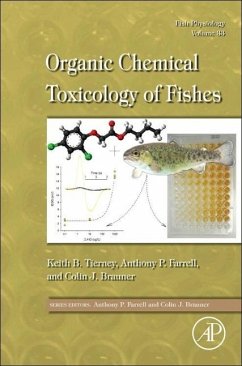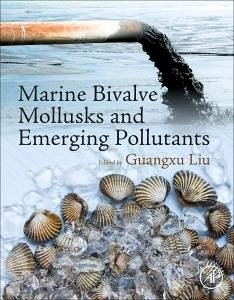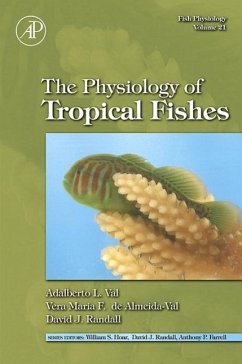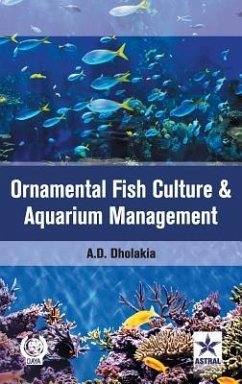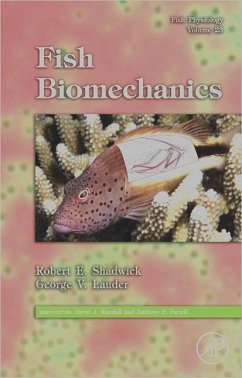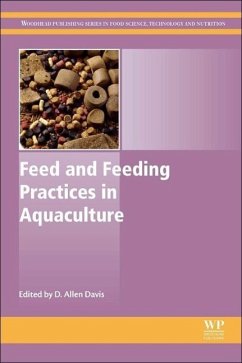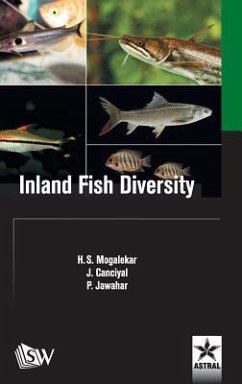Devashish Kar (Department of Life Science Professor and Bioinforma
Broschiertes Buch
Epizootic Ulcerative Fish Disease Syndrome
Versandkostenfrei!
Versandfertig in über 4 Wochen
Weitere Ausgaben:

PAYBACK Punkte
46 °P sammeln!




Covers both background and current information on the Epizootic Ulcerative Syndrome (EUS) disease relevant to fisheries and aquaculture delivered in a systematic and succinct way. This is an essential resource for the aquaculture and fisheries researcher interested in finding solutions to the spread of the disease across the globe and students in relevant programs.
Dr Devashish Kar is a pioneer and preeminent researcher in India in the fields of wetlands, rivers, fisheries, and aquaculture. He completed his master's program at the University of Gauhati with specializations in Fishery Science and Aquaculture. He was awarded a PhD by the University of Gauhati for his outstanding work in the "beel? (wetlands) fisheries of Assam. On a prestigious British Council Study Fellowship Award, Dr Kar was in King's College London for its nine-month Advanced Training in Science Education program. Dr Kar was awarded the prestigious Biotechnology National Associateship by the Indian government's Department of Biotechnology (DBT) for his pioneering research in the field of fish disease, particularly in tackling the dreadful epizootic ulcerative syndrome (EUS) fish disease in India and for conducting further research in defining EUS in collaboration with the National Institute of Virology, Pune. As convener, Dr Kar has organized a number of national and international symposia and workshops in the fields of wetlands, fisheries, and aquaculture, including ornamental fishes, in collaboration with DBT, DST, CSIR, ICAR, MOEF, UGC, and MPEDA. These events have been attended by preeminent scientific personalities, notably Prof. Asis Datta, Prof. Samir Bhattachryya, Dr K.C. Jayaram, and others. Dr Kar has presented papers and chaired scientific sessions at a large number of national and international symposia both in India and abroad, notably the Gordon Research Conference in the United States; 2nd International Symposium on GIS/Spatial Analysis in Fisheries and Aquatic Sciences in England during 2002; Lake Symposium at IISc, Bangalore (2000, 2002, 2010, 2012, and 2014, including chairing sessions); and Indian Science Congress (2012 and 2013, including chairing sessions), to name a few. He also has published in more than 190 national and international journals. Of particular note, 16 research scholars have been awarded MPhil and PhD degrees under his supervision. Professor Kar has authored 34 books (14 books singleauthored by him), including one published by Springer (London) and one in press with Elsevier (USA). Also, the book Community Based Fisheries Management is in press with Apple Academic Press (USA). As President of Conservation Forum, Dr Kar has made a profound contribution to the Society in Environmentrelated works in collaboration with Prof. Madhav Gadgil of the Indian Institute of Science (Retd.), Bangalore. In addition to being Editor of the Conservation Forum Journal, Dr Kar is a Scientific Fellow of the Zoological Society of London and a Fellow of the Linnean Society of London; Fellow of the Zoological Society, Calcutta; Fellow of the Applied Zoologists Research Association; Fellow of the Society of Environmental Biologists; Fellow of the Inland Fisheries Society of India; and others. At the moment, Dr Devashish Kar is seniormost Professor and the Dean of the School of Life Sciences in Assam (Central) University at Silchar, India.
Produktdetails
- Verlag: Elsevier Science Publishing Co Inc
- Seitenzahl: 314
- Erscheinungstermin: 3. September 2015
- Englisch
- Abmessung: 274mm x 213mm x 18mm
- Gewicht: 856g
- ISBN-13: 9780128025048
- ISBN-10: 0128025042
- Artikelnr.: 42885020
Herstellerkennzeichnung
Libri GmbH
Europaallee 1
36244 Bad Hersfeld
gpsr@libri.de
Für dieses Produkt wurde noch keine Bewertung abgegeben. Wir würden uns sehr freuen, wenn du die erste Bewertung schreibst!
Eine Bewertung schreiben
Eine Bewertung schreiben
Andere Kunden interessierten sich für



